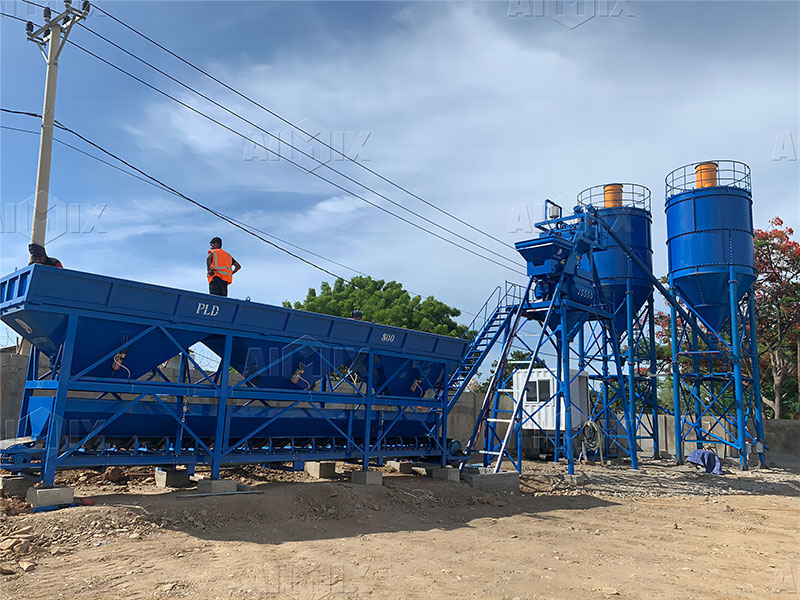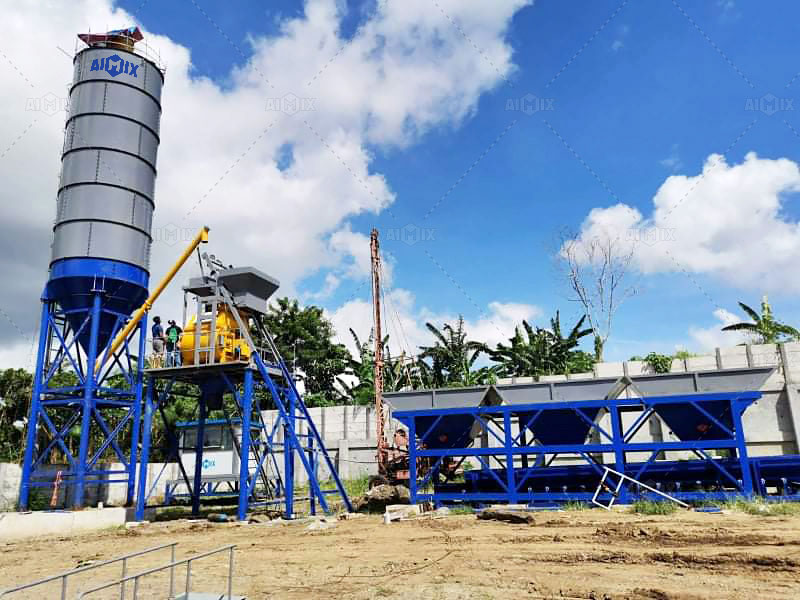In an era where environmental consciousness is a global imperative, industries are reevaluating their practices to align with sustainable principles. The construction industry, a significant contributor to environmental impact, is witnessing a transformative shift towards eco-friendly practices.
1. Introduction to Sustainable Batching Plants:
The traditional image of batching plants conjures thoughts of heavy machinery and concrete dust, but a new wave of sustainable ready mix batching plants is redefining this perception. These modern facilities prioritize eco-friendly practices, integrating innovative technologies and processes to reduce energy consumption, waste, and emissions.

2. Smart Water Management:
Water, a precious resource, plays a pivotal role in the concrete mixing process. Sustainable batching plants are adopting smart water management practices to minimize usage and waste. This includes the implementation of water recycling systems, rainwater harvesting, and the use of advanced sensors to precisely control water content in the mix. By optimizing water usage, these plants not only contribute to conservation efforts but also reduce the environmental impact associated with excessive water consumption.
3. Alternative Energy Sources:
Conventional batching plants often rely heavily on non-renewable energy sources, contributing to greenhouse gas emissions. Eco-friendly batching plants are embracing alternative energy solutions, such as solar and wind power, to meet their energy needs. The integration of renewable energy sources not only reduces carbon emissions but also makes these facilities more resilient and sustainable in the long run.
4. Carbon Footprint Reduction:
Concrete production is a significant source of carbon dioxide emissions, primarily due to the use of cement. Sustainable small concrete batch plants are actively working to reduce their carbon footprint by incorporating alternative binders, such as fly ash and slag, into the concrete mix. Additionally, some plants are investing in carbon capture technologies to mitigate the release of CO2 during the production process, contributing to a more sustainable and climate-friendly concrete industry.

5. Efficient Material Handling and Storage:
Sustainable batching plants optimize material handling and storage to minimize waste and energy consumption. Advanced systems for aggregate storage, precise measurement of raw materials, and efficient conveyor systems contribute to a reduction in material loss and energy usage. By streamlining these processes, eco-friendly batching plants enhance efficiency while minimizing environmental impact.
6. Recycling Concrete Waste:
Concrete waste generated during construction projects can be a significant environmental concern. Sustainable batching plants are implementing practices for recycling concrete waste, turning it into recycled aggregates that can be reused in new concrete mixes. This closed-loop approach not only reduces the demand for raw materials but also minimizes the environmental impact of concrete production.
7. Green Certification and Standards:
The commitment to sustainability is further underscored by obtaining green certifications and adhering to stringent environmental standards. Many eco-friendly concrete batching plants in Saudi Arabia strive to meet or exceed certifications such as LEED (Leadership in Energy and Environmental Design) or BREEAM (Building Research Establishment Environmental Assessment Method), signaling their dedication to environmentally responsible practices.
8. Community Engagement and Education:
Sustainable batching plants recognize the importance of community engagement and education. They actively involve local communities in their environmental initiatives, fostering a sense of environmental responsibility. Educational programs and outreach efforts help raise awareness about sustainable concrete production and its positive impact on the community and the planet.
9. Continuous Research and Innovation:
The journey towards sustainability is ongoing, and eco-friendly mobile concrete batch plants are committed to continuous research and innovation. They invest in the development of new technologies, materials, and processes that further reduce environmental impact. This commitment to staying at the forefront of sustainability ensures that these batching plants remain pioneers in the green revolution within the construction industry.
10. Conclusion:
In the realm of concrete production, the integration of sustainable practices in batching plants marks a significant leap towards a more eco-friendly construction industry. These plants, driven by a commitment to environmental stewardship, are proving that it is possible to achieve precision in mixing while minimizing the ecological impact. As the demand for sustainable construction practices continues to grow, the role of eco-friendly batching plants becomes increasingly pivotal, shaping the future of concrete production and leaving a positive legacy for generations to come.